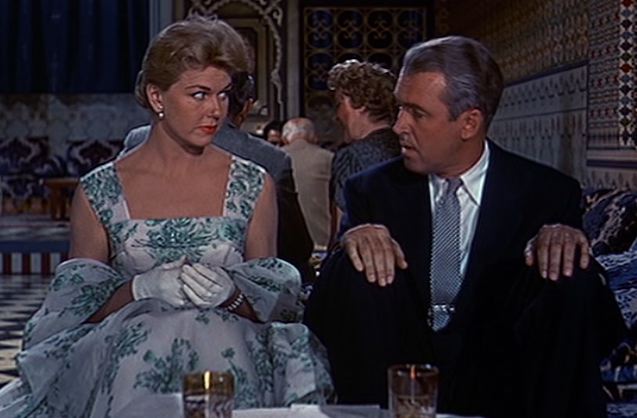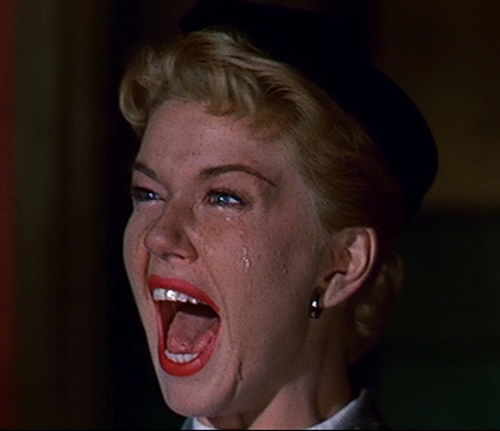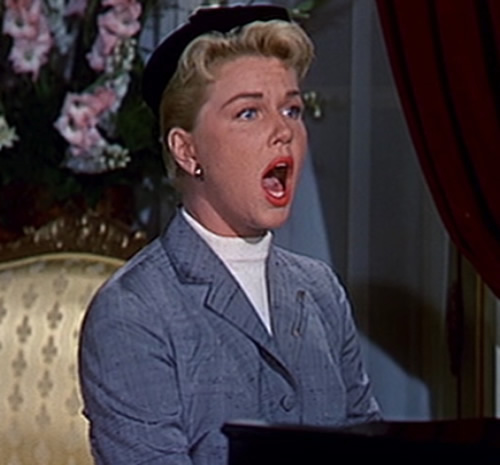Jo as the Film's Subject

These two, then, represent a distorted mirror image of each other. Where Ben fails, Jo succeeds and thus replaces him as the provider and eventual hero—roles men “should” have had in that time period. In seeking to see his reflection as father, Ben only sees his wife staring back at him : powerful, confident, talented, and right. Hitchcock uses several filmic devices to emphasize this dichotomy. In the first scene, as well as in many others, Ben and Jo are presented across the camera from each other. Jo also tends to occupy positions of dominance. She dwarfs her 6'4" husband in almost both in stature and demeanor. Her at times chiding looks should be reserved for children but, instead, serve to put Ben in his place.

Jo's scream marks the film's climax. Every bit of action prior to this scene feeds it, giving it the driving force and pathos it requires. The very fact that Jo changes the imminent future in this scene underscores her subjectivity. Jo rescues both the Ambassador and Hank through her voice alone. Her reemergence as a vocalist is a significant event in the film's development. Not only does it save her son, but it also inserts her into the role she once played so fabulously-- that of a famous singer. Her song, "Que Sera, Sera," not only gained popular acclaim, but also holds great significance within the film's dynamic. It illustrates the tension between music and reality. Though Jo sings about the future being out of grasp and what Spoto calls "fatalism," her song's express purpose is to manipulate events in her favor [13].

Also, notice the copious amounts of flag-coding in this still. Day is decked out in her reds, whites and blues as she heroically saves her lost son. Could this symbolize the final triumph of Western and namely American society?